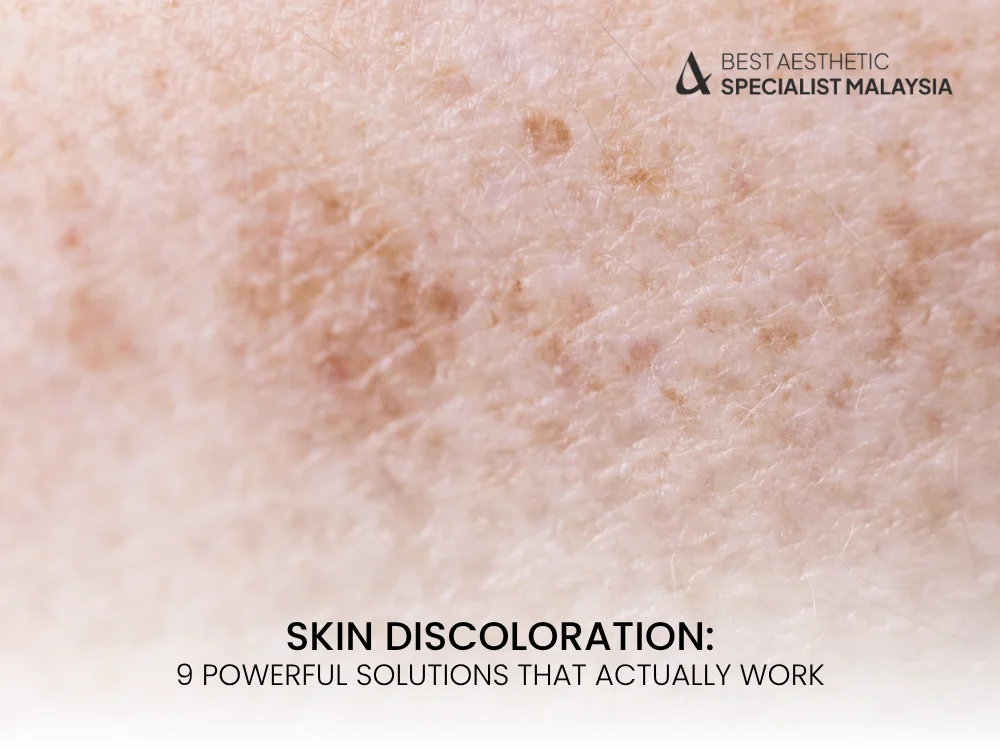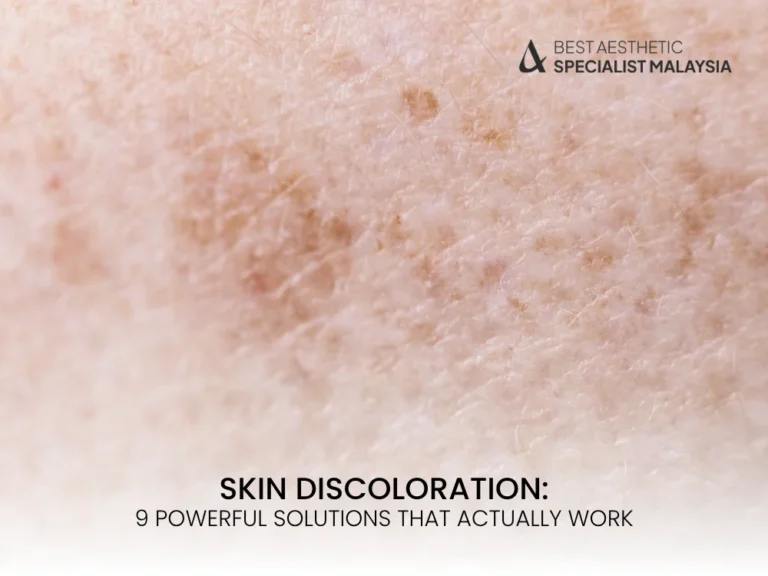Dealing with uneven skin tone, dark patches, or blotchy skin can be frustrating and confidence-draining. Whether it’s caused by sun damage, acne scars, or underlying health conditions, skin discoloration is one of the most common skin concerns affecting people of all ages and ethnicities.
But here’s the good news: most cases of skin discoloration are treatable with the right care, professional advice, and lifestyle adjustments. In this expert-guided article, we explore the leading causes, treatments, and preventive tips—to help you make informed decisions and restore your skin’s natural glow.
What Is Skin Discoloration?
Skin discoloration refers to any abnormal change in skin tone. It can appear as light spots (hypopigmentation), dark patches (hyperpigmentation), or redness depending on the root cause. The discoloration can be temporary or permanent, localized or widespread.
Common Types of Skin Discoloration
- Hyperpigmentation: Darkened skin areas due to excess melanin.
- Hypopigmentation: Lighter skin patches caused by reduced melanin.
- Erythema: Red or pink patches caused by inflammation or irritation.
- Melasma: Brown patches, often on the face, triggered by hormones or sun exposure.
- Post-inflammatory hyperpigmentation (PIH): Occurs after acne, burns, or injury.

Causes of Skin Discoloration
Understanding the cause of your skin discoloration is key to finding the right treatment. Here are the most common culprits:
Sun Exposure
Prolonged UV exposure stimulates melanin production, leading to sun spots or age spots.
Hormonal Changes
Pregnancy, birth control pills, or menopause can trigger melasma due to fluctuating estrogen levels.
Inflammation and Skin Trauma
Acne, eczema, psoriasis, or wounds can leave behind pigmentation once healed.
Medical Conditions
Conditions like vitiligo, liver disease, or Addison’s disease may cause patchy skin changes.
Medications and Chemicals
Certain antibiotics, chemotherapy drugs, or exposure to harsh chemicals can lead to uneven pigmentation.
Topical Treatments for Skin Discoloration
Hydroquinone
A dermatologist-favorite, this skin-lightening agent reduces melanin production. Use under professional supervision to avoid side effects.
Retinoids
Retinol and tretinoin improve cell turnover and fade discoloration over time.
Vitamin C
This powerful antioxidant brightens the skin and protects against UV-induced pigmentation.
Niacinamide
Reduces inflammation, lightens dark spots, and improves skin texture.
Professional Treatments That Work
Chemical Peels
Use acids (like glycolic or salicylic) to exfoliate discolored skin layers. Best for acne scars and melasma.
Laser Therapy
Fractional or Q-switched lasers target melanin deposits and encourage new cell formation.
Microneedling
Boosts collagen and accelerates cell turnover, helping improve tone and texture.
Cryotherapy
Freezes pigment spots with liquid nitrogen, causing them to flake off as new skin forms.
Always consult a board-certified dermatologist before undergoing these procedures.
Natural Remedies for Skin Discoloration
Aloe Vera
Contains aloin, a depigmenting agent that can help lighten dark spots.
Licorice Extract
Blocks melanin production and soothes inflammation.
Apple Cider Vinegar
Contains acetic acid, which may lighten pigmentation when used in moderation.
Green Tea Extract
Fights free radicals and reduces melanin synthesis.
While natural remedies may offer mild benefits, they work best when paired with professional advice.
How to Prevent Skin Discoloration
Prevention plays a major role in managing and avoiding skin discoloration in the long term.
Sun Protection Is Key
- Use broad-spectrum sunscreen (SPF 30+)
- Wear hats and sunglasses
- Reapply every 2 hours when outdoors
Avoid Picking at Skin
Scratching or popping pimples can cause post-inflammatory marks.
Hydration and Diet
- Drink plenty of water
- Eat antioxidant-rich foods (berries, leafy greens, fish)
Gentle Skincare Routine
Avoid harsh scrubs and opt for soothing, non-comedogenic products.
When to See a Dermatologist
If your skin discoloration appears suddenly, spreads rapidly, or is accompanied by itching or pain, it’s essential to consult a dermatologist. You may need lab tests or skin biopsies to rule out systemic issues.
Does Skin Discoloration Go Away On Its Own?
In many cases, mild discoloration—especially due to inflammation or sun exposure—can fade over time with proper care. However, deeper pigmentation issues like melasma or chronic PIH may require long-term treatment and professional intervention.
FAQs
1. What causes sudden skin discoloration?
Sudden discoloration may result from allergic reactions, medication side effects, infections, or underlying conditions like liver disorders. A prompt medical evaluation is advised.
2. Can sunscreen help treat existing skin discoloration?
While sunscreen won’t lighten spots, it prevents further darkening and is crucial during any treatment.
3. Is skin discoloration permanent?
It depends on the cause. Some types like sun spots may fade with treatment, while others like vitiligo may be permanent.
4. Can diet affect skin discoloration?
Yes. Diets rich in antioxidants and low in processed foods support overall skin health and healing.
5. Are skin-lightening creams safe?
Products like hydroquinone are effective but should be used under medical supervision due to potential side effects like irritation or rebound pigmentation.
6. How long does it take to see results?
Most topical treatments require 4–12 weeks for visible improvement, depending on skin type and severity.

